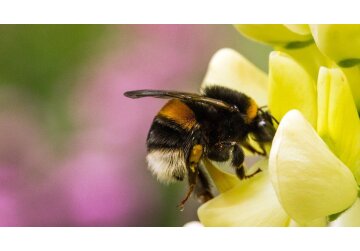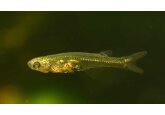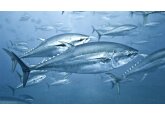
Bee-harming neonicotinoid use "makes a mockery" of ban
Sugar beet farmers have the green light to use a banned pesticide deadly to bees following a forecast that a virus could sweep through their crops.
Emergency authorisation to use neonicotinoids was given in January but rested on a threat level being met.
Supplier British Sugar said the predicted infection rate was now 83% of crop and was "historically high".
Defra said the decision to approve was not "taken lightly" but campaigners said it made "a mockery" of the ban.
Neonicotinoids are toxic to pollinating bees, disrupting their ability to navigate and reproduce. But some sugar beet farmers say the pesticides are needed to protect against the disease known as virus yellows.
"Hugely disappointed"
The threat level posed by the virus had to be independently scientifically-verified by Rothamsted Research in its virus yellows forecast model as being above 65% of crop potentially affected before final permission for the pesticide to be used could be given.
Chair of the NFU's sugar board Michael Sly, who farms land in north Cambridgeshire and south Lincolnshire, said the sugar beet sector - which supports more than 9,500 jobs - was "facing a significant threat" from the disease, which is spread by aphids, and "can decimate crops".
Dan Green, agriculture director for British Sugar - which supplies 60% of the UK's sugar - added that the pesticide was needed "to protect the UK sugar beet crop and farmer livelihoods".
"This year's forecast for virus yellows infection is historically high and exceeds the threshold of 65% to use the seed treatment, as set by Defra in January," he told the BBC.
Previous years have seen the predicted threat range from 8% in 2021 to 85% in 2020, a season when the virus was estimated to have eventually cost growers £43m.
But environmentalists and wildlife campaigners have warned that the decision will be devastating to bees and pointed out that the government had now approved neonicotinoid use for four consecutive years.
Richard Benwell, the CEO of Wildlife and Countryside Link, said: "To have four emergency authorisations in a row makes a mockery of the ban, and now the trigger has been reached, nature will once again have to endure exposure to this harmful chemical."
He called on the government to urgently deliver its long-awaited strategy on sustainable pesticide use.
Barnaby Coupe, land use policy manager at The Wildlife Trusts, said the organisation was "hugely disappointed" but called for farmers to be given more support to grow sugar beet without resorting to chemicals.
A Defra spokesperson said the pesticide would be "tightly controlled", adding: "This decision has not been taken lightly, and now the threshold for the product's use has been passed it will be strictly limited to mitigate risks to the environment, including potential risks to pollinators."
Restrictions include limits on what crops can be planted in the same field as treated sugar beet and on the further use of thiamethoxam seed treatments on the same field within 46 months.
Levels of neonicotinoids in the environment will be monitored.
The government said its national action plan on the sustainable use of pesticides is due to be published "shortly".
Bbc.com







